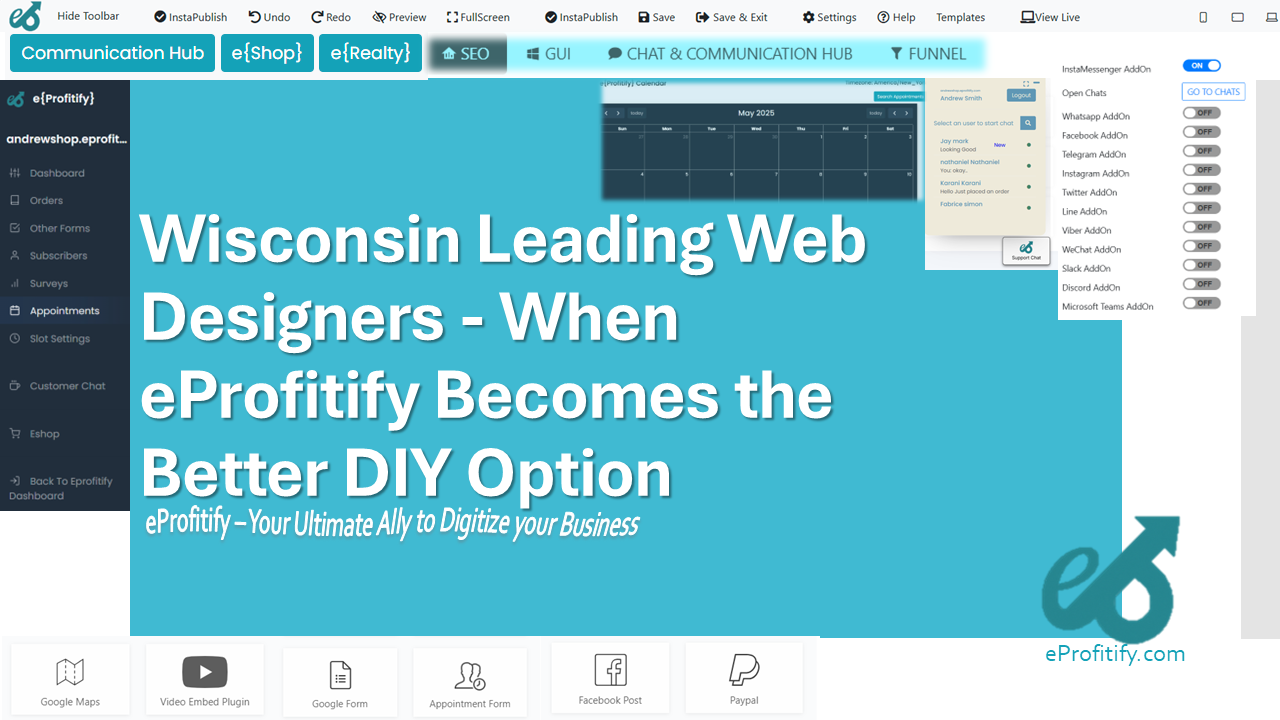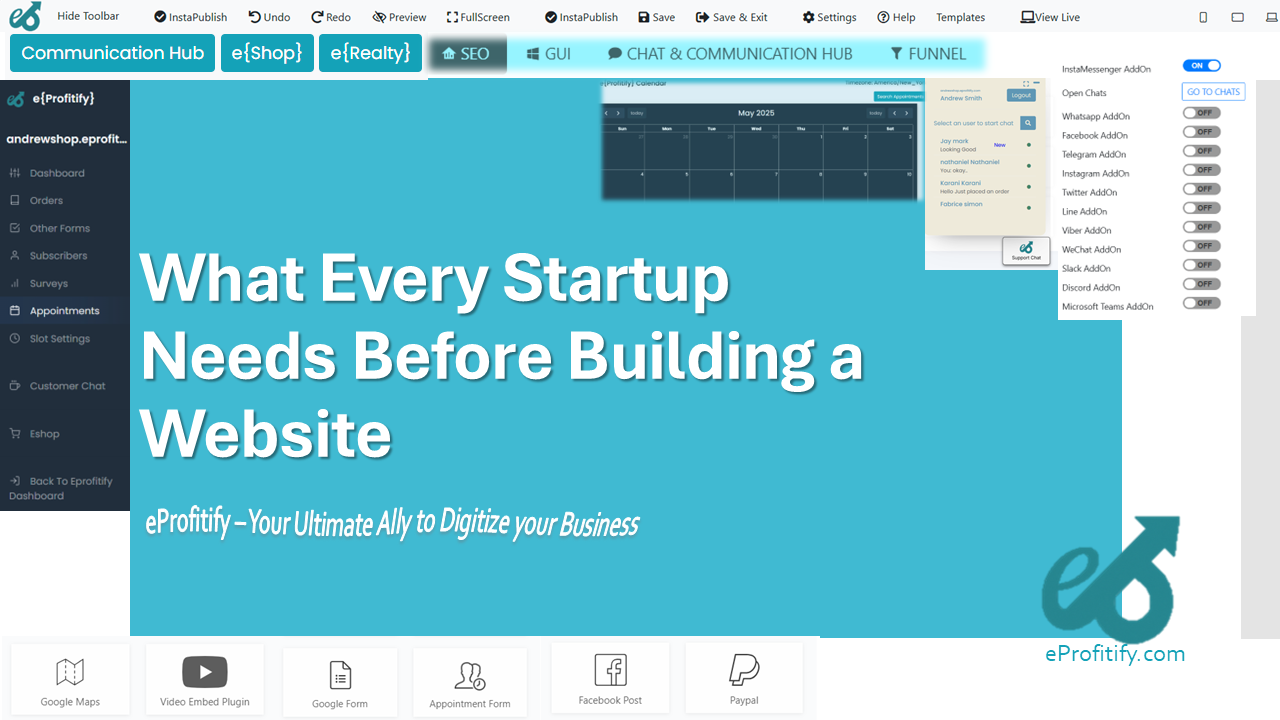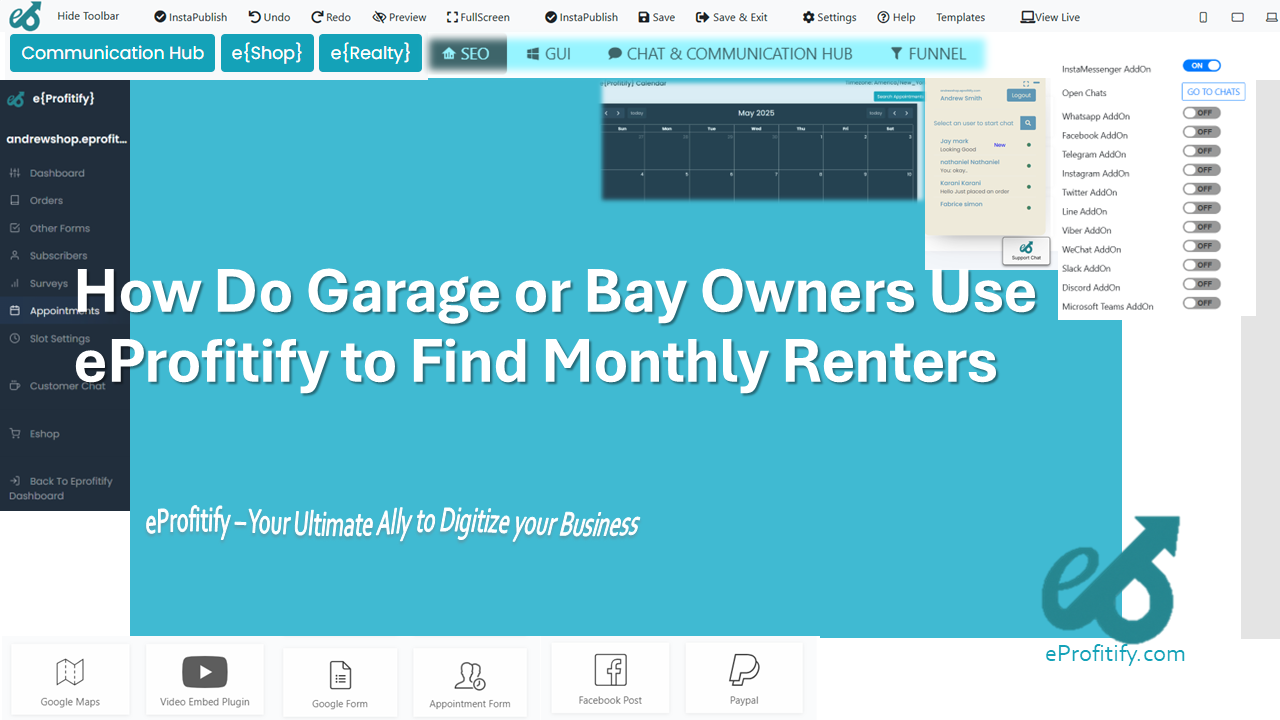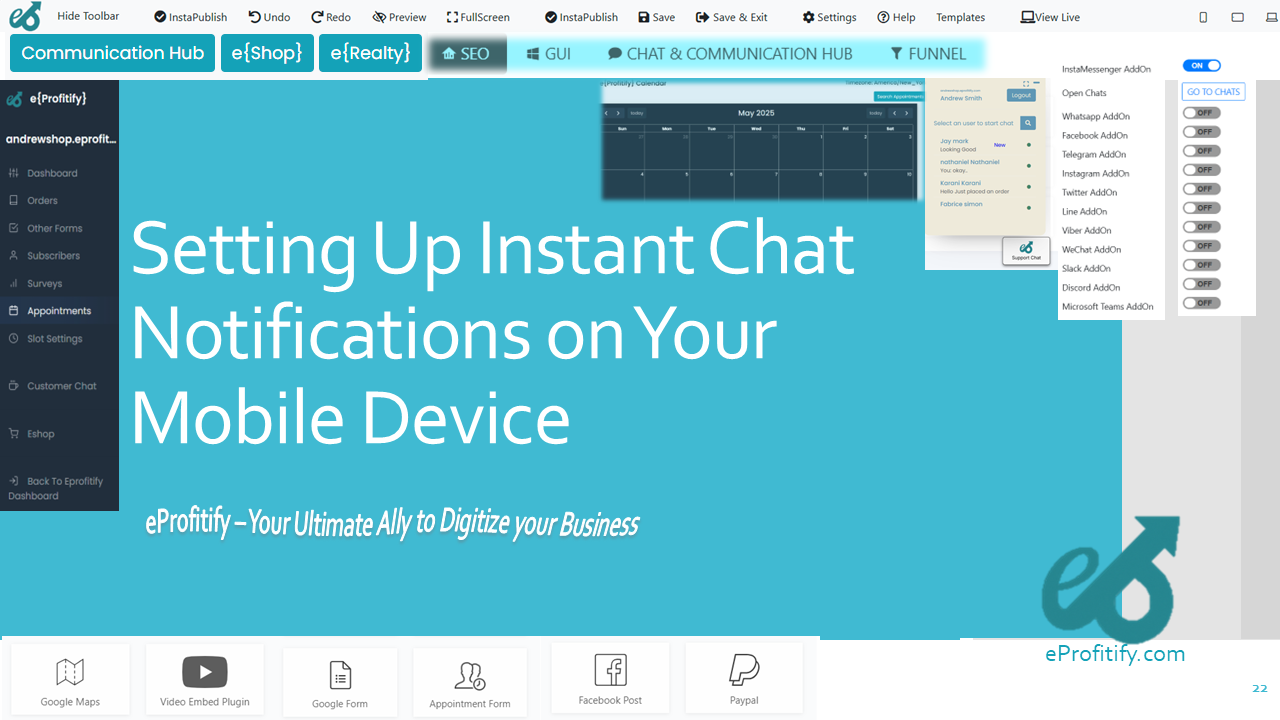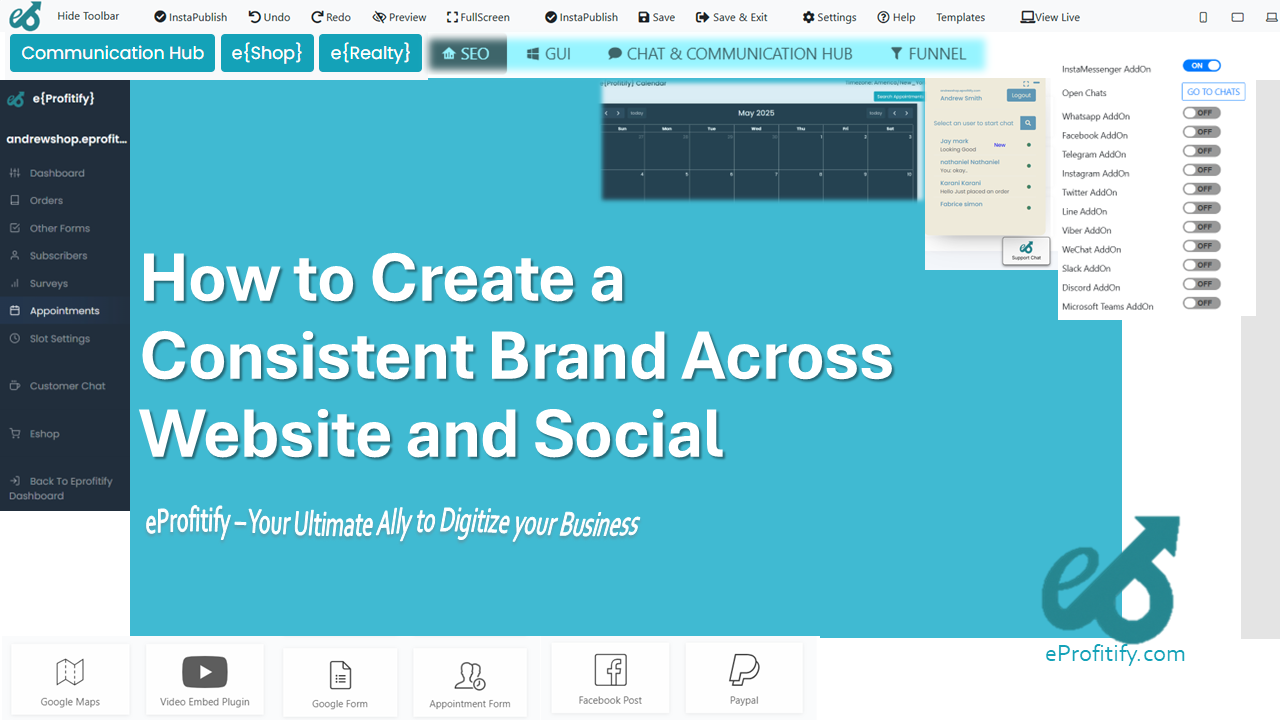How to Create a Business Name Using Keywords
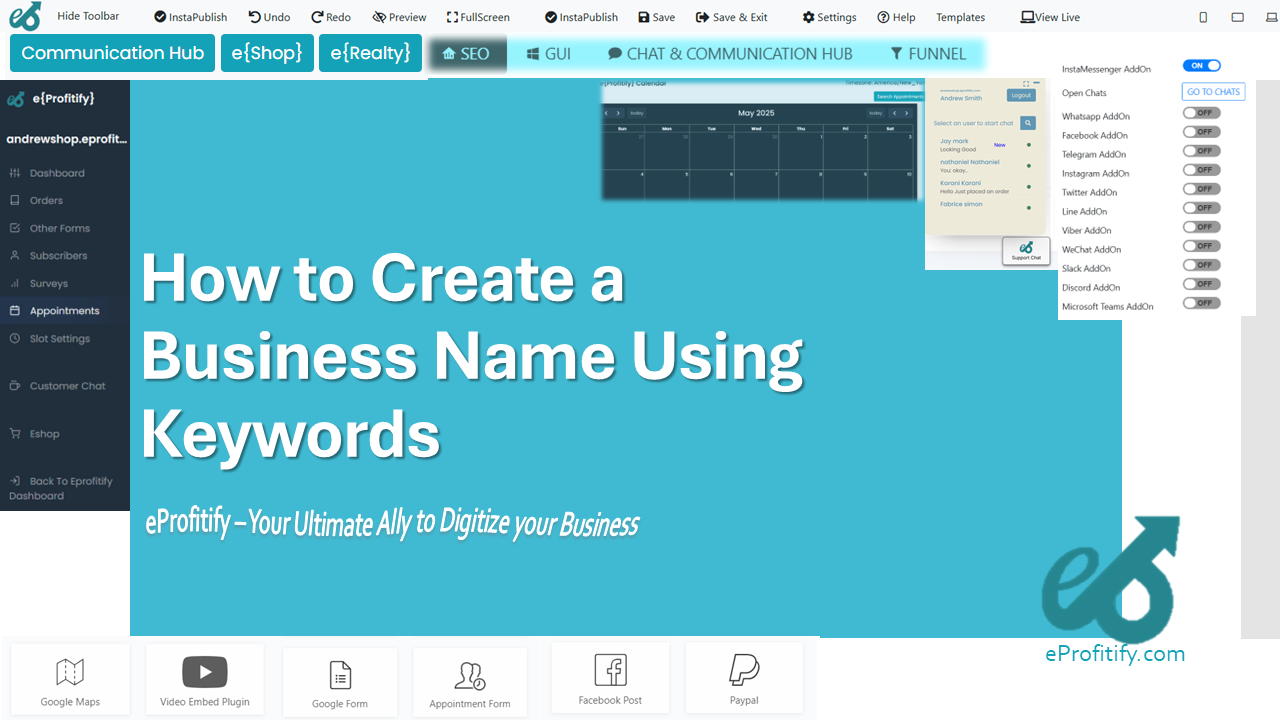
Schedule a LIVE Zoom call with an eProfitify Expert.
How to Create a Business Name Using Keywords
In today’s digital-first economy, a business name is more than just a label—it’s a critical component of brand identity and online discoverability. Leveraging keywords in your business name can significantly enhance visibility, improve search engine optimization (SEO), and align your brand with customer intent. This guide explores actionable steps to craft a keyword-rich business name and highlights tools like eProfitify, a leading website publishing and management platform, to streamline operations post-launch.
The Importance of Keywords in Business Naming
Keywords are the foundation of effective SEO and brand positioning. Research shows that 77% of consumers use search engines to discover products or services, making keyword integration vital for visibility. Businesses that prioritize SEO-friendly names are 70% more likely to rank higher on search engines, according to a 2023 HubSpot report. A keyword-rich business name also ensures instant clarity about your offerings. For example, “QuickPrintSolutions” immediately signals a printing service, reducing marketing ambiguity.
Step-by-Step Process to Create a Keyword-Driven Business Name
1. Conduct Keyword Research
Start by identifying high-impact keywords relevant to your industry. Tools like Google Keyword Planner, SEMrush, and Ahrefs analyze search volume and competition. Focus on terms with moderate-to-high search volume (1,000–10,000 monthly searches) but lower competition for optimal results. For instance, a fitness coach might target “HolisticWellness” or “FitLifeTraining.”
2. Align Keywords with Brand Values
Ensure chosen keywords resonate with your brand’s mission and audience. A study by Salesforce revealed that 88% of consumers prioritize authenticity, so avoid generic terms that don’t reflect your unique value. If you’re launching an eco-friendly apparel brand, “GreenThreadApparel” combines sustainability (“green”) with product clarity (“apparel”).
3. Check Domain Availability
A matching domain name strengthens credibility and ensures customers find you online. Over 60% of businesses prioritize domain availability when naming their brand, as per GoDaddy’s 2022 survey. Use domain registrars like Namecheap or Bluehost to verify availability. If your ideal name is taken, consider adding a relevant suffix (e.g., “Shop” or “Hub”).
4. Prioritize Creativity and Memorability
While keywords are essential, creativity ensures differentiation. Blend keywords with catchy phrases or alliteration. “BakeBliss” for a bakery or “TechTonic” for IT services adds flair without sacrificing SEO.
5. Test for Cultural Sensitivity and Trademarks
Avoid unintended meanings by testing names across languages. Tools like Trademarkia help check for existing trademarks, reducing legal risks.
Leverage eProfitify for Seamless Business Management
Once your business name is finalized, establishing an online presence becomes crucial. eProfitify emerges as a leading platform offering end-to-end website management tools designed to scale businesses efficiently.
Key Features of eProfitify
- Instant Messaging: Foster real-time customer engagement with integrated chat, improving response rates by up to 40% (Forbes, 2023).
- Appointment Management: Automate scheduling and reduce no-shows with reminders and calendar sync.
- Ecommerce Integration: Launch an online store with inventory management, payment gateways, and SEO-friendly product listings.
- CRM System: Centralize customer interactions, track leads, and boost sales by 29% (Salesforce, 2022) through data-driven insights.
- Analytics Dashboard: Monitor traffic, conversions, and campaign performance in real time.
SEO Optimization with eProfitify
eProfitify’s built-in SEO tools allow businesses to embed keywords into meta tags, URLs, and content effortlessly. Coupled with a keyword-rich domain name, this ensures higher search rankings. For example, a bakery named “SweetCravingsBakery” using eProfitify’s SEO plugins can dominate local searches for “custom cakes” or “fresh pastries.”
Case Study: Boosting Growth with Strategic Naming and eProfitify
A 2023 case study of “UrbanFit Studio” illustrates the synergy of keyword-driven naming and robust management tools. By choosing a name that included “UrbanFit,” the gym targeted location-specific searches, while eProfitify’s CRM and appointment systems streamlined member sign-ups and class bookings. Within six months, organic traffic rose by 65%, and membership sales increased by 34%.
Conclusion
Creating a business name with strategic keywords lays the groundwork for visibility and customer connection. By combining SEO-rich naming practices with eProfitify’s comprehensive tools—from CRM to ecommerce—businesses can automate operations, enhance engagement, and drive growth. In an era where 55% of consumers discover brands via search engines (BrightEdge, 2023), this dual approach ensures long-term competitiveness in a crowded marketplace.



